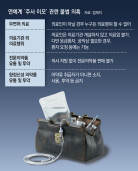Euphemisms
I once tried to buy a used car in the U.S. I visited the car`s owner and tried to negotiate the price, but failed to narrow the differences. Declining my last offer, the car owner told me, I cannot accept it. Thanks for coming anyway. The deal collapsed, but I was less disappointed due to his last words. In English, there are many such expressions. At a bank, when an automatic teller machine displays the notice, Service will be delayed for 30 minutes due to computer error, it is generally followed by the sentence Thank you for your understanding. This is a euphemism in which a situation or object that cannot be directly described or commented on is expressed in an indirect, ambiguous and literary style.
The Japanese are masters of euphemisms. If a man asks a Japanese woman, I have two concert tickets and would like to take you to the concert in several days, and the woman replies, Thank you for the invitation, but I cannot that day due to this and that reason. Please be sure to invite me next time, this means the man`s offer has been effectively rejected. Please invite me next time is not what she really meant. If the man invites her like she suggested, he will likely hear the same response again. Another Japanese-style euphemism is to lengthen a sentence by saying, I have no choice but to say... But for Japanese to say they will review or think about something as a way to decline an offer in negotiations often causes the counterparty to get confused. For Japanese to label sex slaves as comfort women and an invasion as advancing are not euphemistic expressions but distortion of the truth.
When using a rechargeable public transportation card in an intra-city bus in Seoul, the electronic message Your balance is inadequate to cover the fare from a speaker. So one must get off the bus and recharge the card or pay the fare in cash. But soon, people will start hearing the notice You need to recharge your card when the remaining balance falls below 2,500 won (2.32 dollars). This measure is not only more euphemistic but helps prevent a situation in which one gets perplexed due to no money on the card. The Seoul city government is introducing this measure at the suggestion of a resident.
Rapper Psy made an apology for using abusive language in his rap songs that he performed years ago at a rally against U.S. troops stationed in Korea. Public fury at that time was high due to two middle school girls being killed by a U.S. military armored vehicle. The Washington Post asked him whether his popularity would wane due to the controversy, to which the rapper said, That`s not important. What is important is that I sincerely and deeply regret the use of such words as a human being. One should not apologize in an ambiguous way while being mindful of a way to make another excuse later on. An apology must be made in a direct and frank way. Psy has displayed sincerity and truthfulness through his non-euphemistic comments.
Editorial Writer Heo Seung-ho (tigera@donga.com)







